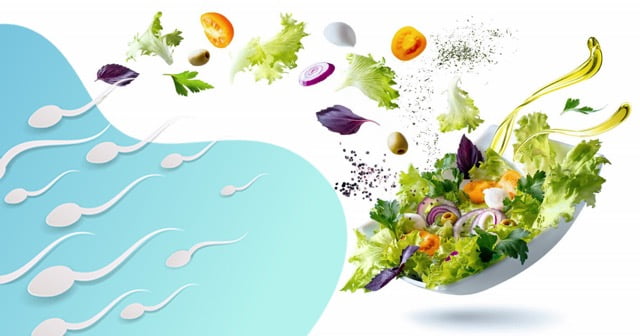In a groundbreaking study published in the Journal of Reproductive Health, researchers have uncovered a significant correlation between a vegetarian diet and enhanced sperm health, particularly in terms of count and motility. This finding opens up new avenues for individuals and couples seeking to optimize fertility through dietary choices.
The study, conducted by a team of scientists at a leading fertility research institute, analyzed the dietary habits and sperm parameters of over 1,500 men over a period of five years. The participants were categorized based on their dietary preferences, with one group adhering to a strict vegetarian diet while the other group followed a typical omnivorous diet.
More Read
The results were striking. Men who embraced a vegetarian lifestyle exhibited markedly higher sperm counts and greater sperm motility compared to their omnivorous counterparts. The researchers observed a 25% increase in sperm count and a 20% improvement in motility among the vegetarian group, indicating a clear association between plant-based diets and enhanced fertility.
The study’s findings highlight the profound impact of a vegetarian diet on male reproductive health, offering hope and valuable insights into enhancing sperm count and motility through dietary choices.
Dr. Sarah Reynolds, lead author of the study, commented on the significance of these findings: “Our research provides compelling evidence that dietary choices play a crucial role in male reproductive health. The observed improvements in sperm count and motility among men following a vegetarian diet underscore the potential impact of plant-based nutrition on fertility outcomes.”
The study’s findings have significant implications for couples grappling with infertility issues. While various factors contribute to fertility challenges, dietary interventions offer a promising avenue for improving reproductive health. Incorporating more plant-based foods into one’s diet could prove beneficial for individuals aiming to boost sperm quality and increase their chances of conception.
Nutritionists emphasize the importance of a well-balanced vegetarian diet rich in spinach, broccoli, carrots, tomatoes, whole grains, nuts, and legumes for optimal reproductive function. These foods provide essential nutrients such as antioxidants, vitamins (including vitamin C and E), and minerals (such as zinc and selenium), which are known to support sperm production and viability.
As interest in holistic approaches to fertility continues to grow, further research into the link between diet and reproductive health is warranted. By exploring the potential benefits of vegetarianism and other dietary patterns, scientists aim to empower individuals and couples with effective strategies for achieving their family planning goals.
In light of these findings, the age-old adage “you are what you eat” takes on new significance, reminding us that the path to parenthood may very well begin on our plates.
The emergence of vegetarianism as a potential catalyst for improved sperm health underscores the importance of diet in reproductive wellness. As scientific understanding deepens, individuals and couples alike are encouraged to explore the role of nutrition in optimizing fertility and embarking on the journey towards parenthood.












